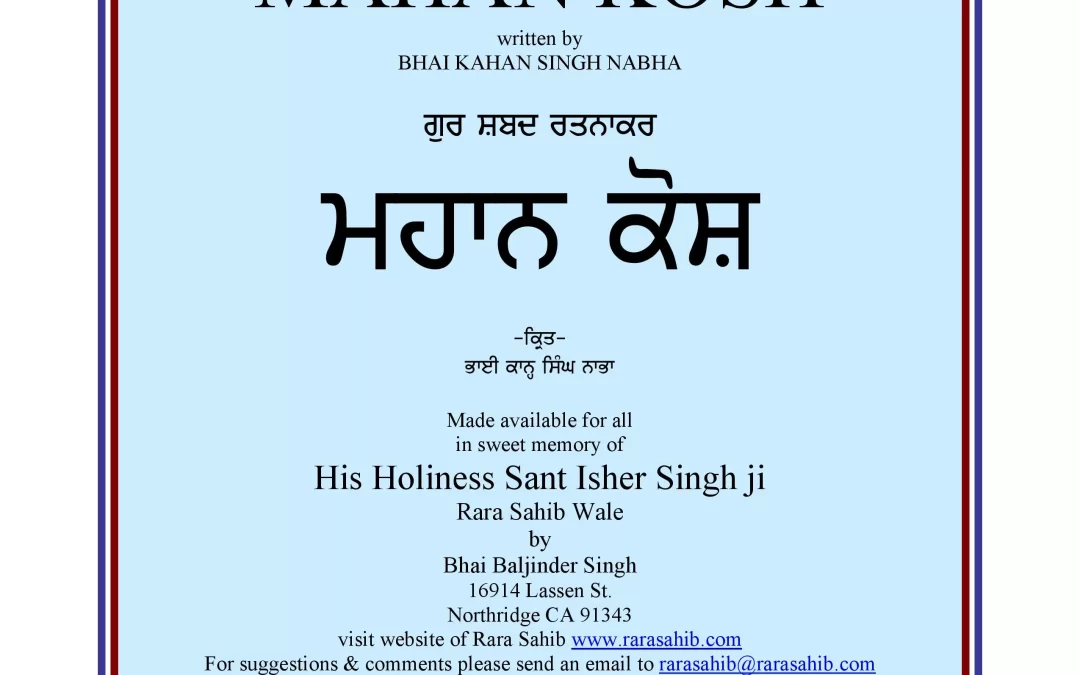Punjabi University, Patiala has stalled the sale of ‘Mahaankosh’ (encyclopedia of Sikh literature) that allegedly consist of technical errors in all of its four volumes published in Punjabi, Hindi, and English.
The university had also published these volumes without the 132 pages appendix recommended by the writer.
The university registrar on May 10 wrote a letter to the director, of the publication bureau, to halt the sale of the book. A number of Sikh scholars, including Amarjit Singh Dhawan, filed complaints with the then vice-chancellor and the governor as well following which a number of review committees were formed. The complaints were received in 2012 to correct the Mahaankosh.
Five residents Rajinder Singh, Gurtej Singh, Karamjit Singh, Ashok Singh Bagrhia, and Amarjit Singh Dhawan had filed a case in the Punjab and Haryana high court following which a notice was served on the authorities of Punjabi University in February this year. The next hearing is proposed for May 19. Professor Baljit Kaur of the department of Punjabi development admitted to having received numerous complaints that were made to the vice-chancellor and other authorities. “The review committees were formed but it could not come up with any decision under former coordinator of department.”
The Mahaankosh also known as ‘Gurshabad Ratnakar Mahaankosh’ was penned down by Bhai Kahan Singh Nabha in 1930 for which he was also given the grant by then maharaja of Patiala Bhupinder Singh Iranian government refused to participate in proceedings following the US-filed application regarding the 1979 US-Iran diplomatic crisis. The Iranian government asserted that the court could not take cognizance of this case. Similarly, in 1984, the Americans walked out of a case brought by the Nicaraguan government. The court is often dubbed as a toothless body and one whose decisions are often influenced by the Western world.
According to article 94 of the UN charter, each member undertakes to comply with the decision of the court in any case to which it is a party. The judgments are final and without appeal. If a state fails to agree then the other party can take the case to the Security Council. It means that a dispute can remain unresolved forever if one of the five permanent members veto against any further action. There have been many such incidents. In 1946, British warships struck mines in Albanian waters and were damaged. The ICJ asked the Albanian government to pay compensation, which it refused. The case was finally mutually settled by both governments in the 1990s.
To View the Full Article Click here
Credit Goes to Times of India

